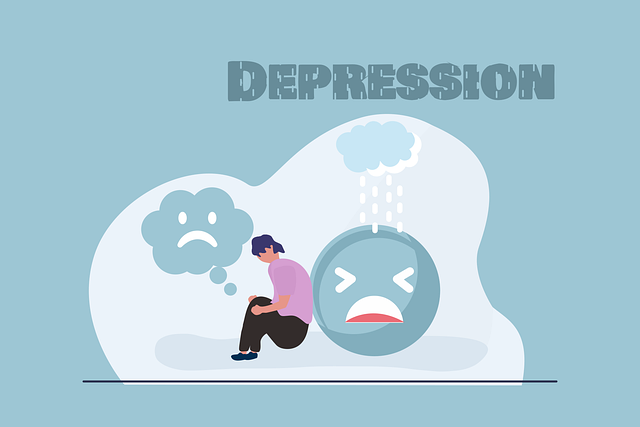Mental health policy advocacy is vital for improving access to quality care and addressing diverse community challenges. Greenwood Village Child Abuse Therapy (GVCAT) exemplifies this through its comprehensive approach, integrating emotional intelligence, mind over matter techniques, and conflict resolution. Their holistic model, focusing on early detection and prevention, has empowered at-risk youth in foster care or low-income families. By promoting cultural sensitivity and developing inclusive policies, advocates ensure mental healthcare caters to diverse needs. GVCAT's success highlights the impact of evidence-based strategies like mindfulness meditation, while strategic partnerships and sharing best practices drive policy improvements for society-wide mental wellness.
Mental health policy advocacy plays a pivotal role in shaping societies’ well-being, especially for vulnerable communities. This article delves into the analysis of mental health policies and their profound impact on diverse populations. We explore success stories like Greenwood Village Child Abuse Therapy, highlighting effective advocacy strategies. Understanding policy foundations and analyzing existing frameworks are crucial steps towards reform. By examining these aspects, we can uncover ways to enhance mental health services and advocate for systemic change, ensuring better outcomes for all.
- Understanding Mental Health Policy: A Foundation for Change
- The Impact of Advocacy on Vulnerable Communities
- Greenwood Village Child Abuse Therapy: A Case Study in Policy Success
- Analyzing Existing Policies and Their Effectiveness
- Strategies for Effective Mental Health Policy Advocacy
Understanding Mental Health Policy: A Foundation for Change

Understanding Mental Health Policy is a pivotal step towards fostering positive change and improving access to quality care for all. In the heart of this understanding lies recognizing that mental health is an integral part of overall well-being, influenced by a complex interplay of social, economic, and environmental factors. This recognition challenges us to look beyond individual resilience and embrace systemic advocacy.
Greenwood Village Child Abuse Therapy serves as a beacon, highlighting the urgent need for comprehensive mental health policies that address not just symptoms but also the underlying causes. By integrating principles like emotional intelligence and mind over matter, coupled with conflict resolution techniques, these policies can empower individuals to navigate life’s challenges more effectively. Such an approach ensures that mental healthcare becomes an accessible, inclusive, and supportive resource for communities across diverse landscapes.
The Impact of Advocacy on Vulnerable Communities

Advocacy plays a pivotal role in amplifying the voices of vulnerable communities and addressing their unique mental health challenges. These efforts often center around raising public awareness about issues affecting marginalized groups, such as children in foster care or low-income families facing systemic barriers to quality mental healthcare. For instance, initiatives like those spearheaded by Greenwood Village Child Abuse Therapy demonstrate the power of advocacy in improving access to specialized services for at-risk youth.
By fostering Cultural Sensitivity in Mental Healthcare Practice, advocates ensure that public policies reflect the diverse needs of various communities. This involves developing inclusive strategies and programs that consider cultural contexts and promote positive thinking as a tool for mental wellness. Public Awareness Campaigns Development is another effective advocacy tactic, empowering individuals to recognize signs of distress and seek support without stigma. These efforts collectively contribute to breaking down barriers and fostering more compassionate and responsive mental healthcare systems, ultimately benefiting all members of society.
Greenwood Village Child Abuse Therapy: A Case Study in Policy Success

In the realm of mental health policy advocacy, the Greenwood Village Child Abuse Therapy (GVCAT) stands out as a shining example of successful initiatives. This case study illustrates how dedicated efforts to address childhood trauma can lead to profound improvements in community well-being. GVCAT, established with a clear policy focus on early intervention and prevention, has significantly contributed to enhancing mental wellness among vulnerable youth. The program’s holistic approach, encompassing therapy sessions, support groups, and educational workshops, has been instrumental in fostering resilience and breaking the cycle of abuse.
The success of GVCAT can be attributed to its collaborative model, involving local authorities, healthcare professionals, and community volunteers. By integrating Mental Wellness Coaching Programs Development and implementing innovative strategies like Mental Wellness Podcast Series Production, GVCAT has reached a broader audience. Positive Thinking and resilience-building techniques are seamlessly integrated into the therapy process, empowering young individuals to navigate life’s challenges with greater confidence. This case study underscores the power of evidence-based policies in transforming lives and highlights the potential for widespread mental health advocacy.
Analyzing Existing Policies and Their Effectiveness

In examining mental health policy landscapes, a thorough analysis of existing frameworks and their real-world applications is paramount. This involves evaluating the impact of current initiatives, such as those provided by Greenwood Village Child Abuse Therapy, on vulnerable populations. By scrutinizing policies related to access, funding, and service delivery, advocates can pinpoint successes and areas needing improvement. For instance, while Social Skills Training has shown promise in enhancing mental wellness among youth, cultural sensitivity in mental healthcare practice remains a critical gap, highlighting the need for more inclusive strategies.
Such an assessment should consider the effectiveness of policy implementations, especially when tailored to address specific challenges. For example, examining the outcomes of programs aimed at increasing access to mental health services for diverse communities can offer valuable insights. By learning from both successful and insufficient approaches, policymakers can craft more comprehensive and impactful strategies that promote mental wellness on a societal level, ensuring that all individuals, regardless of background, have the chance to thrive.
Strategies for Effective Mental Health Policy Advocacy

Effective mental health policy advocacy requires a multi-faceted approach that involves strategic planning and the utilization of various communication channels. One key strategy is to build strong alliances with like-minded organizations, community leaders, and policymakers. By fostering partnerships, advocates can amplify their voices and create a collective impact on shaping policies related to mental well-being. Greenwood Village Child Abuse Therapy serves as an example of a local initiative that has likely collaborated with regional stakeholders to provide comprehensive support systems for individuals facing emotional challenges.
Additionally, leveraging educational resources and sharing evidence-based practices can be powerful tools. Incorporating techniques such as mindfulness meditation and self-awareness exercises into policy discussions can promote understanding and empathy. Emotional healing processes, often supported by these practices, are essential components of holistic mental health advocacy. By combining strategic partnerships with informative approaches, advocates can drive meaningful change, ensuring policies reflect the latest research and community needs, ultimately enhancing access to quality mental healthcare for all.
Mental health policy advocacy plays a pivotal role in fostering positive change, as evidenced by successful initiatives like the Greenwood Village Child Abuse Therapy program. By analyzing existing policies and learning from case studies, we can develop effective strategies to support vulnerable communities. Understanding mental health policy is essential for driving systemic change, ensuring resources reach those who need them most, and ultimately improving lives. Building on these insights, advocates can push for policies that not only address current challenges but also pave the way for a more resilient and inclusive society.














